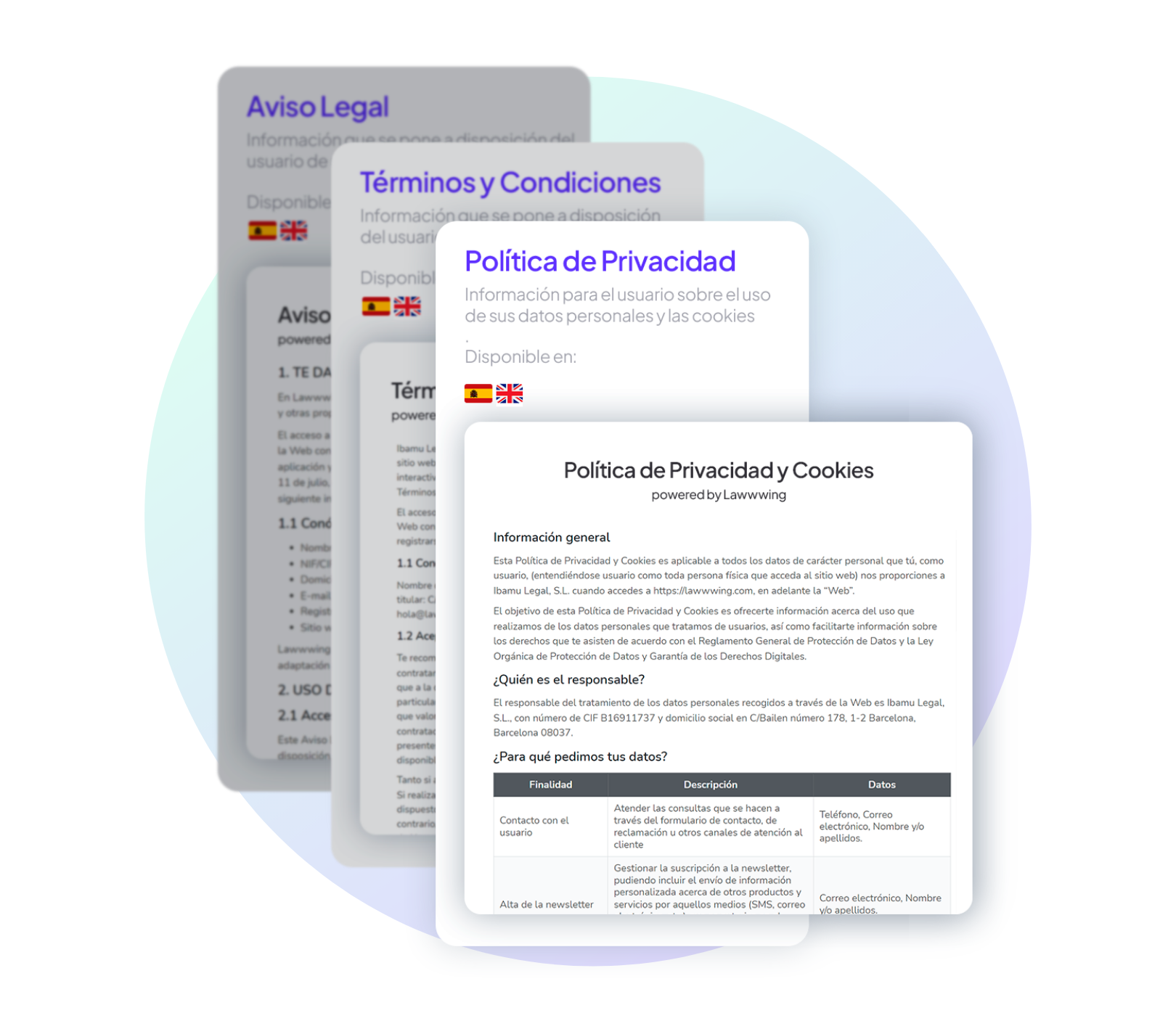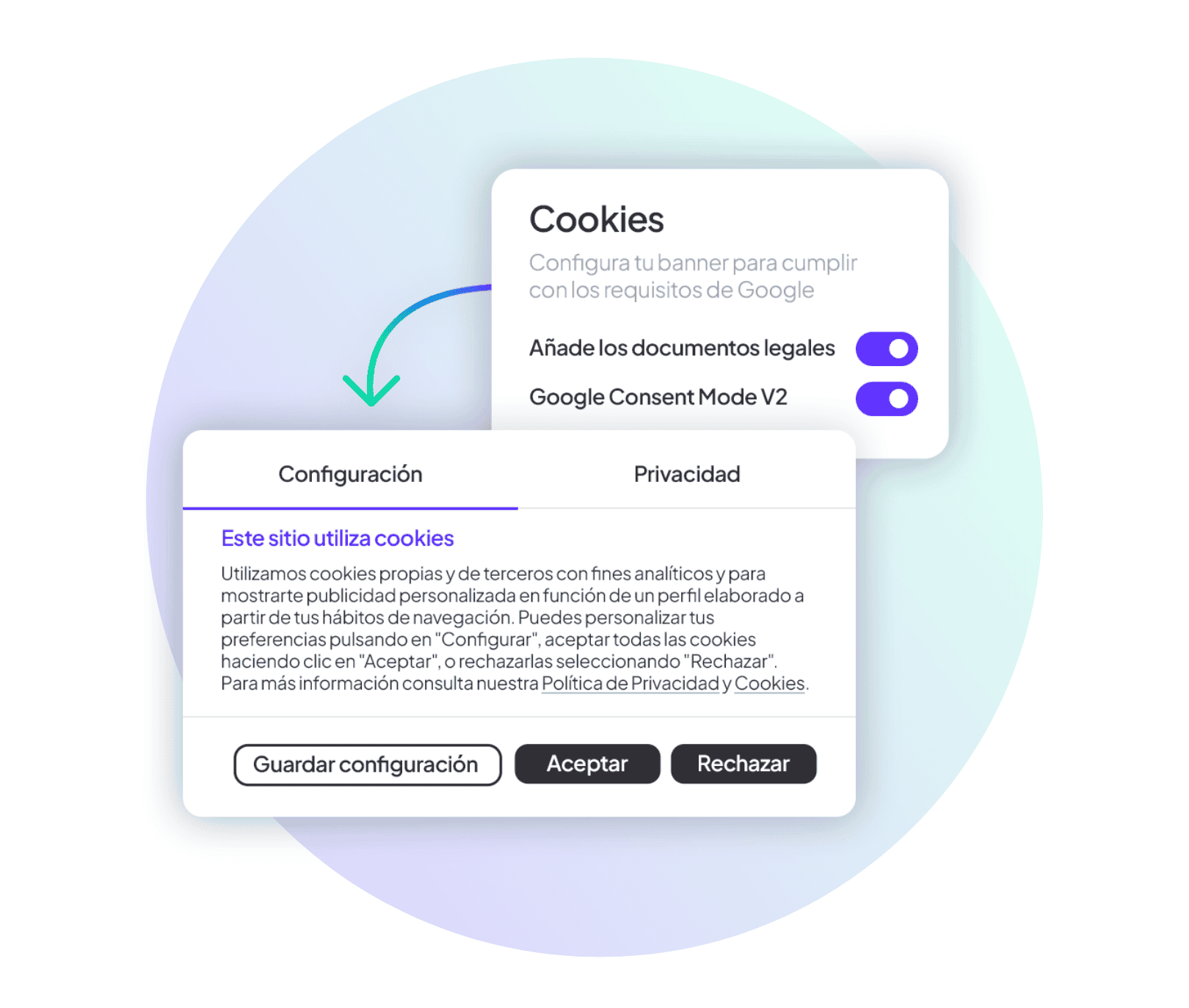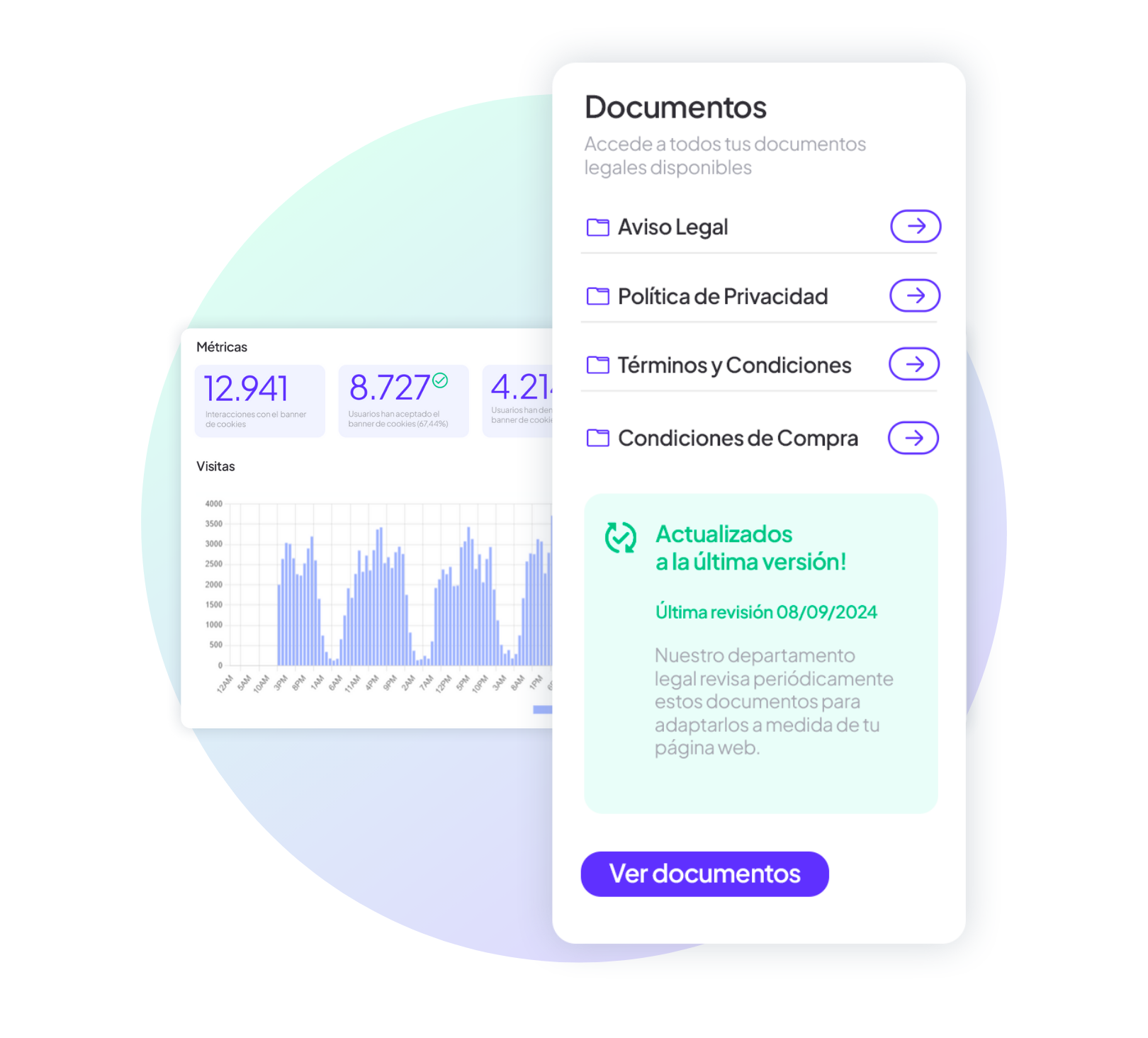Any website that operates in or receives traffic from the European Union must comply with the GDPR, the ePrivacy Directive, ecommerce regulations, and other legal obligations. These regulations also apply to companies based outside the EU if they offer services to European users.
Any website operating in the European digital environment must comply with a set of specific regulations governing data protection, electronic contracting, and the activity of digital platforms. These obligations apply both to companies based in the EU and to those offering services to European users.
They regulate how you use personal data and cookies. You need explicit user consent and clear policies on privacy, analytics, and advertising.
You must clearly inform users about who is behind the website, how the contracting process works, and what rights users have. Each country adapts this directive to its own legislation.
They apply to websites with user-generated content, marketplaces, or apps. They require the removal of illegal content, identification of sellers, and transparency in algorithms and advertising.
Legal compliance in Europe means much more than just avoiding penalties: it is essential for operating transparently, properly protecting your users, ensuring legal security for your website, and strengthening your company’s position in an increasingly regulated and demanding digital environment.



Comply with Google Consent Mode and keep your legal texts
always up to date with the GDPR, effortlessly.
A website must have a Privacy and Cookie Policy to comply with the GDPR, LOPDGDD, and the ePrivacy Directive. This ensures users are informed about how their personal data is processed, their rights are respected, and penalties of up to 4% of annual turnover are avoided.

This document sets out the rights and obligations between your business and your customers or users, covering key aspects such as platform usage, payments, returns, and delivery times (when applicable).

Compliant with the GDPR and the ePrivacy Directive. As a Google partner, Lawwwing is compatible with Google Consent Mode v2, and is also integrated with Meta Consent Mode and Microsoft UET. In addition, we offer an IAB TCF v2.2 solution for managing third-party advertising cookie consent.

Websites in the European Union must include a Legal Notice to ensure transparency regarding data processing and information about the website owner. This protects both users and businesses from legal penalties.

With the Lawwwing plugin, you get a cookie banner compatible with Google Consent Mode v2 and keep your legal texts up to date with the GDPR, all backed by legal experts.
In this section, we answer the most common questions about cookie policies and how to ensure your website complies with current regulations.
In the EEA, there are several regulations that govern the protection of personal data, product purchases, online services, AI use, etc. These regulations are constantly evolving and may vary slightly between countries, which makes keeping up with them very complex for any digital business.
Moreover, the penalties for non-compliance can be very high (up to 4% of annual revenue), but it also damages your reputation, SEO, and user trust. Lawwwing helps you avoid these risks easily.